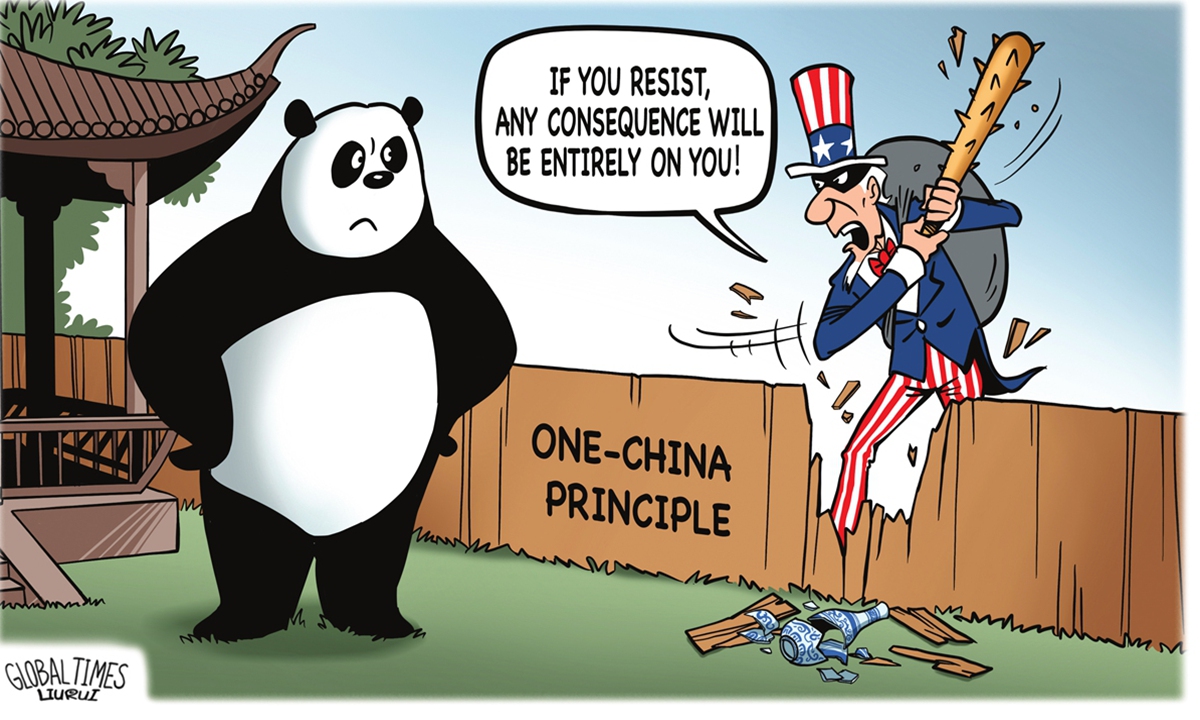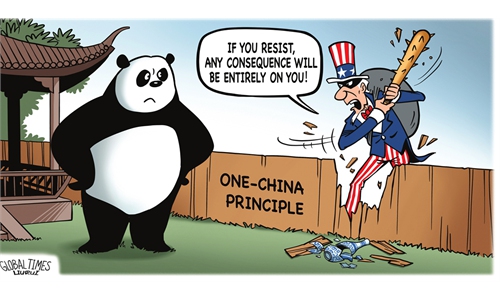Wide criticism in US and Europe of Pelosi’s Taiwan visit not adequately reflected in Western media: Clare Daly

China, US Illustration: Liu Rui/GT
Editor's Note:
It's been a little over a week since US House Speaker Nancy Pelosi wrapped up her sneaky visit to the Taiwan island, but the mess she created remains in the already tense situation. "Whatever way you look at it, it is bad statecraft. It is not adult behavior," Clare Daly (Daly), an Irish politician and member of the European Parliament, told the Global Times (GT) in a written interview. Reports show that on Pelosi's trip, Europe largely stays out of the fray, but a number of Lithuanian and British politicians seem to want to follow suit. "Ordinary people want peace not war. Their leaders should try to reflect that preference," said Daly.

Clare Daly. Photo: Courtesy of Clare Daly
GT: On Twitter, you said Pelosi's visit to Taiwan island was "a stupid, vain, reckless decision, with potentially dire consequences for everyone alive, taken for the sake of a meaningless publicity stunt." Would you elaborate on this view?
Daly: Whatever your view on the status of Taiwan, the status quo involves a delicate diplomatic balance. This includes decades of cautious US policy on Taiwan - something recognized by most American foreign policy experts on cross-Straits relations. Pelosi's trip, at the present moment, appears to signal a change in the US posture, whether or not there actually is a change. That could have runaway consequences. It seems to have been done for no other reason than show off, and make the Democrats look tough on China. US foreign policy experts are alarmed by it. Even the White House didn't want her to go. This is destabilizing and irresponsible. Nobody gains from it: not China, not the US and not people in Taiwan. Whatever way you look at it, it is bad statecraft. It is not adult behavior.
GT: According to your knowledge, do other European politicians share your view?
Daly: Plenty of politicians in Ireland and Europe understand and share my views. The Pelosi visit has also been widely criticized in the US, not just by people on the left, but by liberals and academics who understand the situation. This is not reflected in some Western media, but many subtleties of international politics fly over the heads of Western media. But even the New York Times criticized the visit. It is widely accepted that this visit was unhelpful.
GT: In response to Pelosi's visit to Taiwan island, more than 170 countries and many international organizations have reiterated their commitment to one-China principle. While it seems not many countries, other than G7 and Australia are on US side. What's your take on this phenomenon?
Daly: I am not on the US or the Chinese side. I am on the side of peace. In the present circumstances, ensuring peace requires caution, diplomacy and compromise. These are increasingly rare qualities in international diplomacy.
GT: Only a few months after the Russia-Ukraine conflict broke out, the US escalated its conflict with another major power - China. Do you think the US is accelerating its pace on the path of strategic adventurism?
Daly: Global civilization is facing the most extreme threat: climate breakdown. Disaster will engulf our planet if there is not sustained global cooperation to address it. In that context, all sides should show restraint, and focus on cooperation, not conflict.
GT: Some British legislators plan to visit Taiwan island in November, and some Lithuanian politicians have already landed on the island this week, following Pelosi's tour. Are they placing their personal interests above national interests? How would their voters view the politicians' Taiwan trips?
Daly: Everybody should have the right to travel to wherever they like, including politicians, but that's a different thing to somebody making an official visit. Official delegations of this type stand only to exacerbate cross-Straits tensions, and don't help anyone. I don't know the opinions of the British or Lithuanian public on this, but in general, ordinary people want peace not war. Their leaders should try to reflect that preference.

